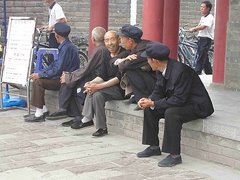Luxury jeweller Cartier has joined Tiffany & Co in boycotting gems such as rubies and sapphires from Myanmar after the country's military rulers carried out a bloody crackdown on peaceful pro-democracy protesters.
Cartier, owned by luxury goods group Richemont, said it has stopped buying gemstones that may have been mined in Myanmar and told its suppliers to confirm that the stones they provide are not mined in the country.
Tiffany stopped buying rubies from Myanmar in 2003 when the United States Congress enacted a law that bans the import of products from Myanmar.
The ban includes a loophole that allows dealers to import gems from Myanmar if they were cut and polished elsewhere.
Jewellers of America, a national association representing some 11,000 jewellers including Tiffany and Cartier, has called on Congress to amend the law to include gems mined in Myanmar.
"This is going to become such a contentious issue, because a lot of gem dealers don't feel like this is an issue worth dealing with. It's a shame," said Brian Leber, a jeweller from Illinois who stopped buying Myanmese gems in 2002.
The association is also urging its members to seek assurances from their suppliers that they will not knowingly supply any gems mined in Myanmar until the country starts a process of democratic reform.
Last month, at least 10 people were killed when Myanmese soldiers opened fire to clear the streets of up to 100,000 Buddhist monks and civilians demanding democracy.
That sparked international outrage, with western countries condemning the repression and demanding that the military free political detainees and start talking with the opposition.
The jewellers' association said it had taken immediate steps to inform its members about the situation in Myanmar and advised them to "source their gemstones in a manner that respects human rights".
Despite growing calls for a boycott, the ruling junta said yesterday it would conduct another auction of gems and jade next month.
The November 7-19 auction would be the fifth such sale this year, the official New Light of Myanmar newspaper said. Each auction attracts buyers from around the world who spend as much as US$100 million, making the gem sales a key source of revenue for the regime.
Myanmar supplies up to 90 per cent of the world's rubies and has rich jade deposits that are highly prized in China.
Many stones are smuggled through neighbouring Thailand, where they are often cut and polished for eventual sale in the US or Europe.
For the past 700 years, the so-called "Valley of Rubies" in the Mogok region of northeast Myanmar has been mined for "pigeon blood" rubies - considered the finest in the world - as well as for sapphires and other rare gems. A top-notch ruby can cost more per carat than a diamond, making it a must-have accessory for the newly rich in Asia, Russia and the Middle East.
Last year, an 8.62-carat ruby from Myanmar fetched a record price of US$3.7 million - or US$425,000 per carat - at a Christie's auction.
Imperial jade - emerald-green in colour - is another treasure highly sought by the Chinese, the main customers for the country's gems.
The stones are mined at a huge human cost, with reports of forced labour in Myanmar's ruby mines, which outsiders are forbidden to see.
The gem industry "is dominated by the military regime and its cronies", said Jeremy Woodrum, the director of the US group Campaign for Burma - the country's previous name.
"No one with a conscience should buy a ruby because it is almost assuredly from Burma."




